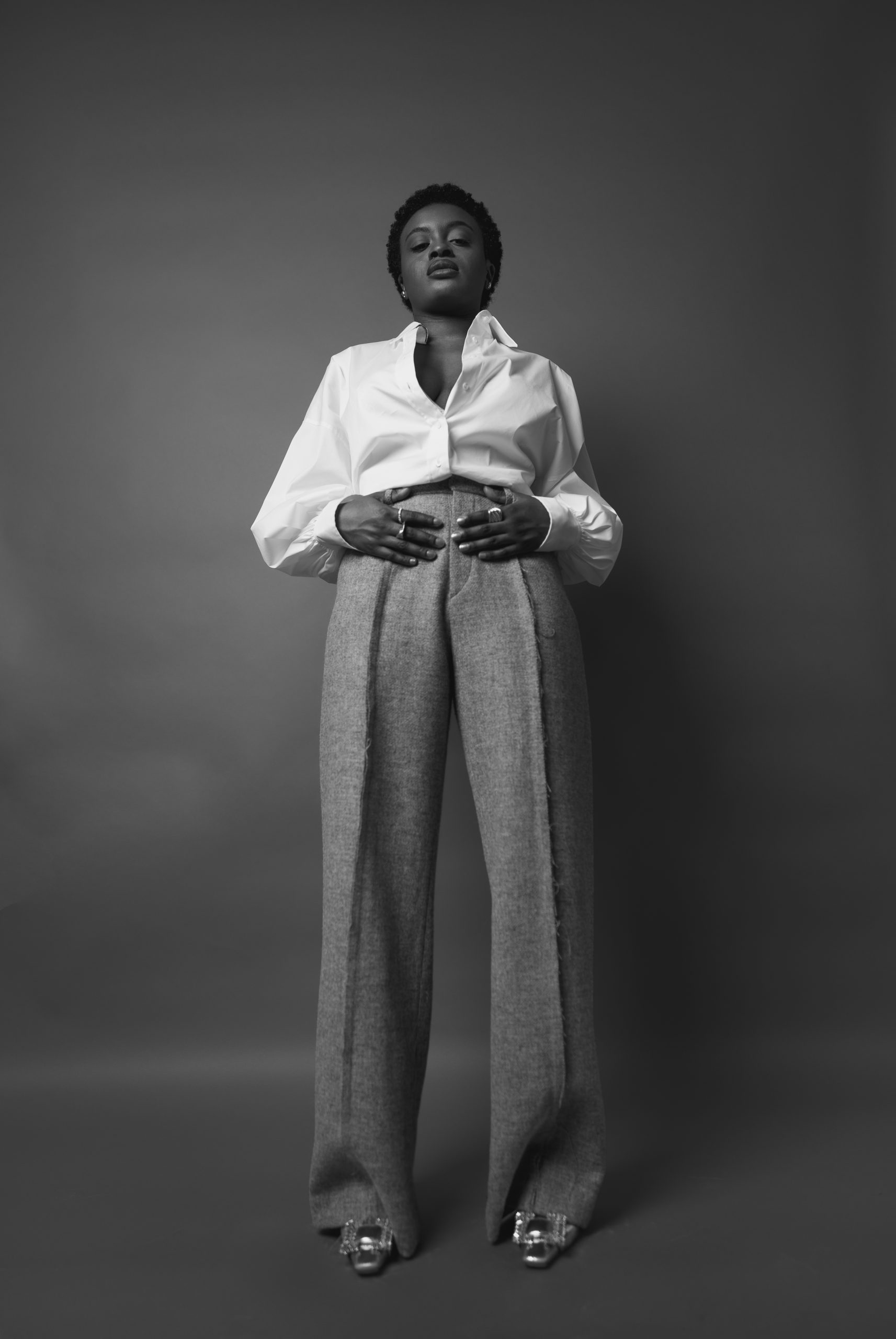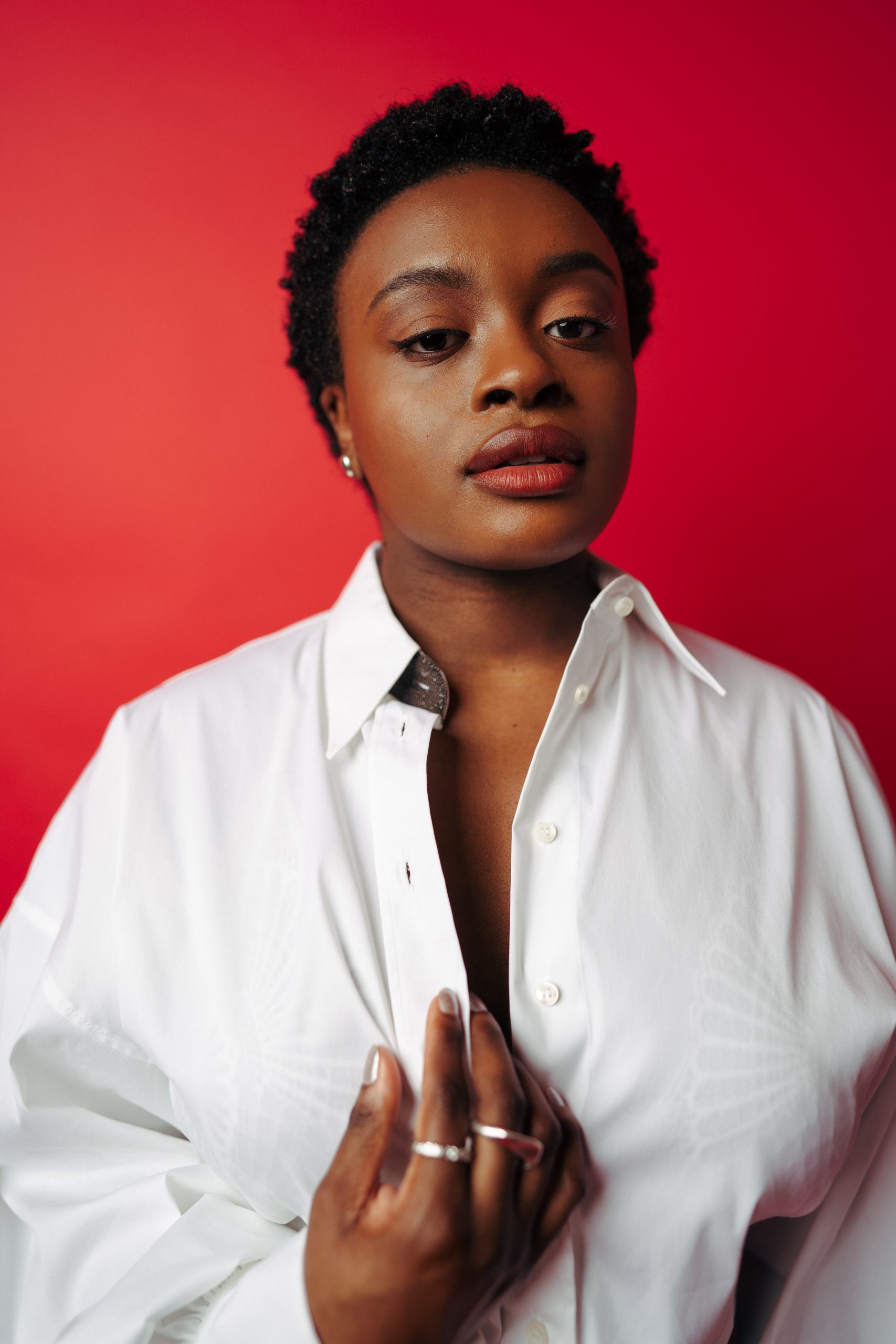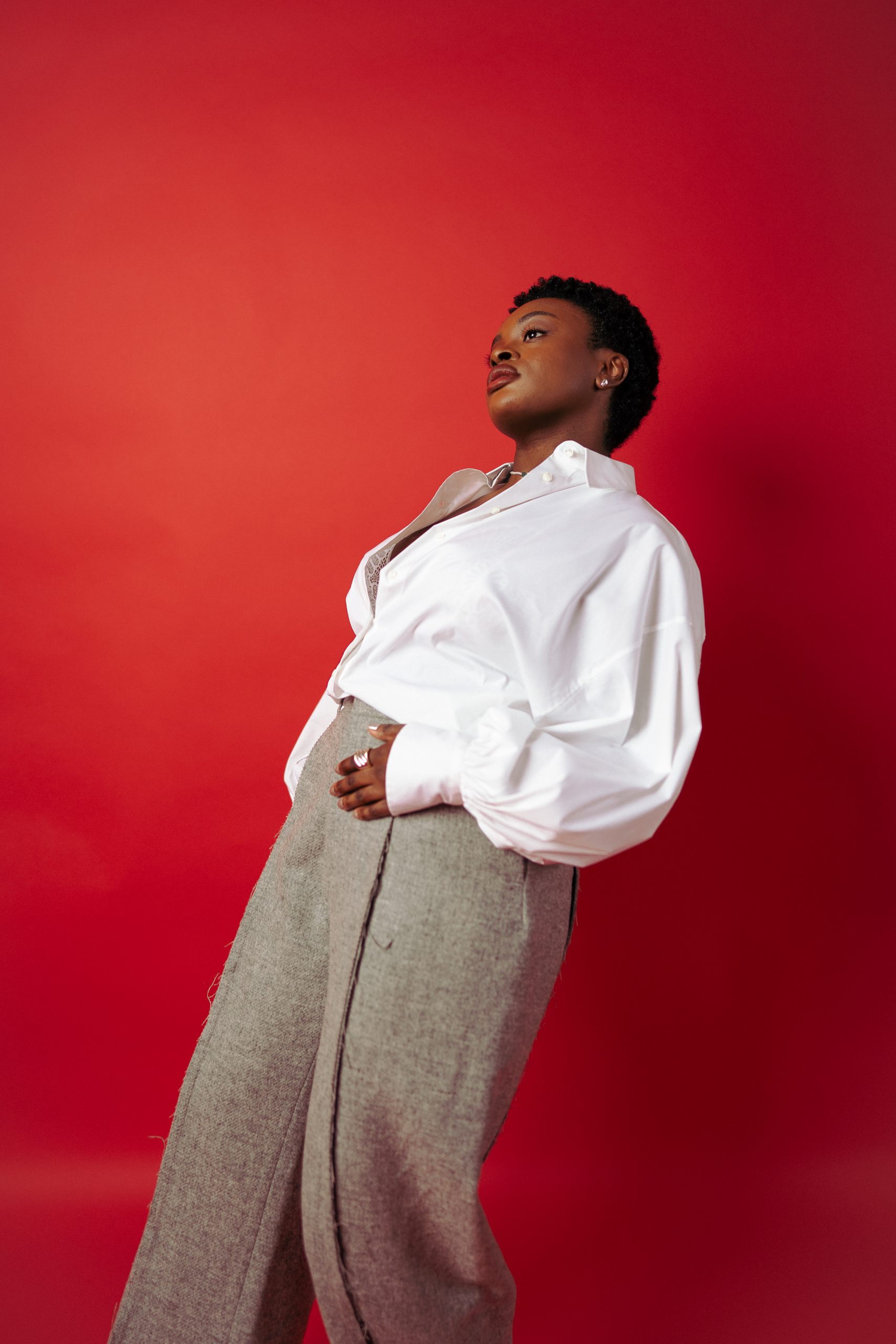Story / JoAnn Zhang
Photos / Sophie Ming
Styling / Sierra Smith
Hair / Geo Brian Hennings
Makeup / Rebecca Restrepo
When we think of prodigies, we might imagine a wiry little boy in overlarge spectacles surveying a chalkboard’s impenetrable white hieroglyphic equations. He might not know he is a prodigy, but more likely he, plied with the admiration of parents and counselors, knows and believes it. Celia Rose Gooding has probably heard the same words orbiting her: “youngest-ever…”, “award-winning…”, but I could not tell if Celia truly believed she had it, that ephemeral halo of prodigy, or if she would relish the weight of it. At 23, the facts of her biography are these: she has won a Grammy for Best Musical Theatre Album for the play Jagged Little Pill, where she played precocious teen activist Frankie Healy; she was nominated for a Tony Award for Best Featured Actress for the same role. She has now taken up the character Uhura in Star Trek. These accomplishments are extraordinary for anyone, never mind her youth, yet when she tells me how these feats came to fruition, she is practical, not only in her matter-of-fact speech, but seemingly as a branch of modesty: she doesn’t play into the fantasy of the artist as someone otherworldly, someone unreachably omnipotent.

After she auditioned for Jagged Little Pill in high school with a 29-hour reading, she made a pact with her mother: she would go to Pace University, but she could drop out if the show went to Broadway. Her mother, LaChanze, is an actress who played Celie in the Broadway musical adaptation of The Color Purple, and she had had a conservatory education. But Celia’s late father Calvin Gooding was a scholar and securities trader, and LaChanze wanted her daughter to be “a well-rounded person and not just a well-rounded actor.” As it turns out, the show did go to Broadway, Celia dropped out, and Jagged Little Pill enjoyed a couple years of success, accruing Tony nominations and critical acclaim. In 2021, the play hit controversy over the backstage treatment of non-binary characters, and several actors left citing transphobia. Celia also left around this time, saying it was a natural stopping point for her.
Her next major role was the iconic Lieutenant Nyota Uhura of Star Trek, for the franchise prequel Star Trek: Strange New Worlds. The character Uhura first appeared on the massively popular show in 1966. She was one of the first representations of a black woman in an intellectual position of power and became a role model for Whoopi Goldberg, Martin Luther King Jr., President Obama, and millions more. Whoopie Goldberg, who reprised the role of Celie for the film adaptation of The Color Purple remembered saying, upon seeing Uhura on TV, “I just saw a Black woman on Television, and she ain’t no maid!” Martin Luther King Jr. told the original actress of Uhura, Nichelle Nichols, “For the first time on television, we will be seen as we should be seen”— with dignity and humanity. Obama also had a childhood crush on Uhura.
Reprising this sacred role for Celia was understandably intimidating. “To be given the task of reprising a role that is so beloved and was made so iconic by such a pillar in the Sci-Fi community, it was a massive undertaking, and I did not take it lightly,” she told me. “I feel very honored to be tasked with this, because it means that a lot of incredibly important people believe in me, and a lot of incredibly devoted fans believe in me.”
Does such a weighty role ever get too much? “At the end of the day, I remind myself that it’s a job. In the Star Trek world, the stakes are very high. But in the real actual world, when you zoom out and get an objective view on what’s happening, we’re all just playing pretend. When things get big and scary, I remind myself that what I’m doing for a living is not nearly as intense and life-threatening as the stakes are in the fictional universe of Star Trek,” she said, in a refreshing flip of the art world’s insistence on taking everything seriously.

The Uhura of Star Trek: Strange New Worlds is around Celia’s age since the show takes place before the original Star Trek series. Uhura is a prodigious but uncertain young woman, who questions her role in Starfleet, much like Celia herself. “We are both young people who have been given a lot of responsibility at a very early age. It’s funny, we both have feelings of, I don’t know if I’m in the right place at the right time, but I’ve been given this opportunity and I’m not going to miss it,” Celia told me. “22-year-old Uhura reminds me a lot of 18-year-old Celia, who felt like they were just dropped into an ever-moving and well-oiled machine, and didn’t really know if that was their place, but took up the task anyway and tried to make the best of it.”
To a character so similar to herself, Celia has imparted her own touch to the iconic character, even if a nervous one. She laughed as she said, “I think my Uhura runs a bit on the anxious side. She, especially after the trauma that she’s faced, definitely has a lot of relationship anxiety, of not knowing how comfortable she is with meaning something to people. Sometimes, that feeling of meaning something to someone is a lot. I don’t think it’s something that I really got 100% used to, and I don’t think that’s necessarily a bad thing.”
Part of what Star Trek represented was not just a scientific utopia, but a cultural and ideological one. Beyond Uhura, the show was also one of the first to depict an equal interracial relationship. In the Star Trek universe, people had moved past petty mortal differences and the worst parts of humanity, bigotry, discrimination, and hate. Their problems were larger, ideological and philosophical, rather than flaws of human nature. Star Trek shows us the ideal next evolution of who we, as a people, might be. Stars on the rise like Celia, are the first inklings of that hopeful new world.
*This interview was conducted before the SAG-AFTRA strikes.
CONNECT WITH CELIA ROSE GOODING:

